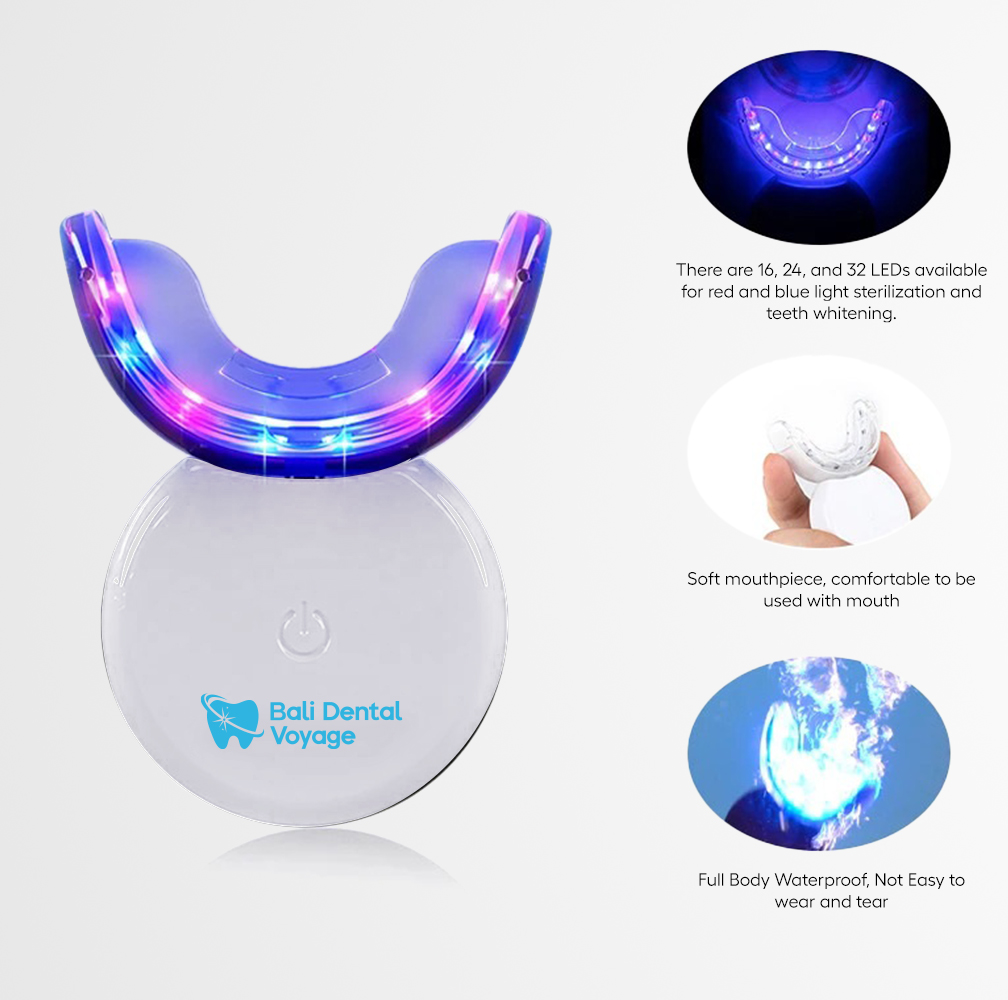
Dental implants have become a popular option for those looking to replace missing or damaged teeth. While the procedure is generally safe, it is important to understand the potential dental implant risks involved before deciding to undergo the procedure. In this article, we will take a closer look at the potential dental implant risks associated with dental implant surgery, including:
- Factors Affecting the Success of Dental Implants
- Problems After Dental Implants
- Signs of Failing Dental Implant
- Are Dental Implants Worth the Money
We will also explore ways to minimise these dental implant risks and ensure a successful outcome. Understanding the potential dental implant risks of the procedures can help individuals make an informed decision about whether this type of treatment is right for them.
Factors Affecting the Success of Dental Implants
The success of a dental implant procedure depends on several factors, including:
- Patient’s Overall Health
Individuals with certain health conditions, such as diabetes or osteoporosis, may be at a higher risk for complications from the procedure. Additionally, smokers and individuals who have poor oral hygiene are also at a higher risk for implant failure. - Quality of the Implant
Implants that are made from high-quality materials and are well-designed are more likely to be successful than those that are of lower quality. - Surgical Technique
A skilled and experienced surgeon will be able to place the implant with precision and accuracy, which can increase the chances of a successful outcome. - Implant Placement Type
The endosteal implant which is placed into the jawbone and the subperiosteal implant which is placed on top of the jawbone, have different success rates. Endosteal implants have a higher success rate as they have direct contact with the jawbone and have better osseointegration. - Timing of Implant Placement
The longer the gap between the extraction of the tooth and the placement of the implant, the more bone loss will occur, which can negatively affect the success of the implant. - Maintenance and Care
Proper maintenance and care of the implant are essential to ensure its long-term success. This includes regular visits to the dentist for check-ups and cleaning, as well as good oral hygiene practices at home. In conclusion, the success of dental implant procedures depends on various factors, including:- Patient’s overall health
- Quality of the implant
- Surgical technique used
- Implant placement type
Additionally, proper maintenance and care of the implant after the procedure is also crucial to ensure its long-term success. By understanding these factors and working closely with a skilled and experienced dentist, individuals can increase their chances of a successful outcome.
Problems After Dental Implants
While the majority of dental implant procedures are successful, some patients may experience problems after the procedure. We will take a closer look at some of the most common problems that can occur after dental implant surgery and how they can be managed.
Infection
One of the most common problems after dental implant surgery is infection. This can occur when bacteria enter the surgical site and can cause pain, swelling, and redness.
If left untreated, an infection can lead to implant failure. If you suspect an infection, it is important to contact your dentist immediately.
Nerve Damage
During the surgical procedure, there is a risk of damaging the nerves in the jaw, which can lead to numbness, tingling or pain in the lower lip, tongue or chin. This is generally a rare complication but can be permanent if not treated on time.
Implant Failure
In some cases, the implant may not integrate properly with the bone, leading to implant failure. This can occur due to a variety of factors, including poor surgical technique, poor oral hygiene, or a lack of bone density. If the implant does fail, it will need to be removed and replaced.
Sinus Issues
Dental implant placement in the upper jaw can affect the sinuses if the implant is placed too close to the sinus floor, this can lead to sinusitis or other sinus problems.
Loosening of Implant
Over time, the implant may become loose due to wear and tear, poor oral hygiene or other factors. This can cause discomfort and may require additional treatment.
Allergic Reaction
In rare cases, some people may develop an allergic reaction to the material used in the implant, such as titanium. This can cause pain, swelling, and redness, and the implant may need to be removed. To minimise the risk of complications after dental implant surgery, it is important to work closely with a skilled and experienced dentist.
Additionally, proper maintenance and care of the implant after the procedure is also crucial to ensure its long-term success. This includes regular visits to the dentist for check-ups and cleaning, as well as good oral hygiene practices at home. In conclusion, dental implant surgery is generally safe and effective, but it can come with complications.
Understanding the possible problems that can occur after the procedure can help patients to be prepared and take the necessary steps to manage them. With proper care and maintenance, dental implants can provide a long-lasting solution for missing or damaged teeth.
Signs of Failing Dental Implant
One of the most serious complications is implant failure, which occurs when the implant does not integrate properly with the bone. We will take a closer look at the signs of a failing dental implant and what to do if you suspect that your implant is failing.
- Pain or Discomfort
One of the most common signs of a failing implant is pain or discomfort in the affected area. This can be caused by infection, nerve damage or the implant becoming loose. If you experience pain or discomfort, it is important to contact your dentist immediately. - Swelling or Redness
Swelling or redness in the area around the implant can be a sign of infection. This can be caused by bacteria entering the surgical site or by a poor-fitting implant. If you notice swelling or redness, it is important to contact your dentist immediately. - Loosening of the Implant
Over time, the implant may become loose due to wear and tear, poor oral hygiene or other factors. This can cause discomfort and may require additional treatment. If you notice that the implant is loose, it is important to contact your dentist immediately. - Implant Mobility
If you notice that the implant is moving when you chew or bite, it may be a sign that the implant is failing. This can occur when the implant does not integrate properly with the bone, or when the implant becomes loose. - Change in Bite
If you notice a change in your bite or the way your teeth come together, it may be a sign that the implant is failing. This can occur when the implant does not fit properly or when the implant becomes loose. - Gum Recession
When the implant is not placed properly or there is an infection it can cause the gums to recede, exposing the implant. This can lead to implant failure. It’s important to note that the above-mentioned signs can be caused by other factors as well, and do not necessarily indicate implant failure.
However, if you notice any of these signs, it is important to contact your dentist immediately for an evaluation. To minimise the risk of implant failure, it is important to work closely with a skilled and experienced dentist. Additionally, proper maintenance and care of the implant after the procedure is also crucial to ensure its long-term success.
This includes regular visits to the dentist for check-ups and cleaning, as well as good oral hygiene practices at home. In conclusion, dental implant failure can occur when the implant does not integrate properly with the bone. Understanding the signs of a failing dental implant can help patients to be prepared and take the necessary steps to manage them.
With proper care and maintenance, dental implants can provide a long-lasting solution for missing or damaged teeth.
Are Dental Implants Worth the Money
Dental tourism has become a popular option for many people looking to save money on dental procedures. One of the most popular destinations for dental tourism in Bali, Indonesia, where dental implant procedures can be significantly cheaper than in other countries. But are dental implants in Bali worth the money?
We will take a closer look at the benefits and drawbacks of getting dental implants in Bali and whether they are worth the investment. One of the main benefits of getting dental implants in Bali is the cost savings. Dental implant procedures in Bali can be as much as 70% cheaper than in other countries.
This can be a major factor for people who are looking to save money on their dental treatments. Bali is also a popular tourist destination, which can be a great opportunity to combine a dental procedure with a holiday. The island offers a wide range of tourist activities, from beautiful beaches to cultural experiences, making it a great destination for those who want to combine their dental procedure with a vacation.
Another benefit of getting a dental implant in Bali is the availability of skilled and experienced dentists. Many dentists in Bali have received their training and education in Western countries and are well-versed in the latest techniques and technologies. Additionally, many dental clinics in Bali are equipped with state-of-the-art technology and facilities, which can ensure a safe and successful procedure.
However, there are also potential drawbacks to getting dental implants in Bali. One of the main concerns is that the quality of care may not be the same as in other countries. This is because dental regulations and standards can vary from country to country.
Additionally, the cost savings may not be as significant as they seem, as the cost of travel, accommodation and other expenses can add up. It’s also important to consider the language barrier, as not all dentists in Bali are fluent in English. And it’s also important to research the dental clinic and the dentist before having the procedure, to ensure that the clinic is reputable and that the dentist is qualified and experienced.
In conclusion, getting dental implants in Bali can be a cost-effective option for many people, but it’s important to consider the potential drawbacks before making a decision. It’s also important to research the dental clinic and the dentist before having the procedure, to ensure that the clinic is reputable and that the dentist is qualified and experienced. Additionally, it’s also important to factor in the cost of travel, accommodation and other expenses when determining whether dental implants in Bali are worth the money.
Summary
Dental implants are a revolutionary method of replacing missing teeth and have undergone significant advancements over time. However, as with any surgical procedure, there are always potential dental implant risks and complications that should be taken into consideration. By being aware of the potential risks and complications before surgery, you can increase the chances of a successful dental implant treatment experience.
If you have any questions or concerns, the team at Bali Dental Voyage is available to provide more information and address your fears. Don’t hesitate to reach out to us by calling (+62)821-4580-8597, our team will be happy to assist you with any questions or concerns you may have. Our team of experts will gladly respond to your inquiries in a friendly manner.
We eagerly await your contact.




